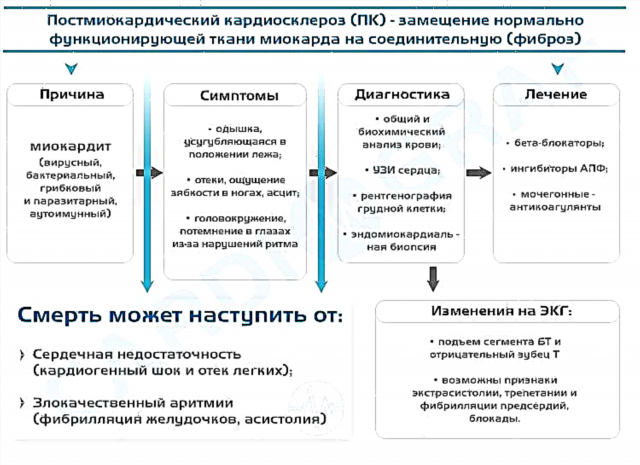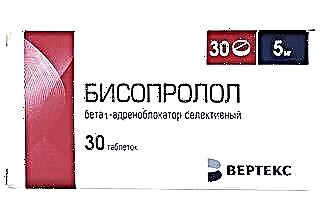Everyone has experienced a sore throat at least once in their life. It occurs for various reasons, the most likely of which is a viral or bacterial infection. Painful sensations associated with inflammation of the mucous membrane of the pharynx and adjacent anatomical sections are characteristic of influenza, other acute respiratory viral infections, as well as tonsillitis of streptococcal and staphylococcal etiology. They vary in intensity. Some patients easily tolerate pain and do not resort to pain medications, others have to restrain themselves when talking, swallow food with difficulty. The pain syndrome disappears only with a successful impact on the main process, so the question of how to quickly heal the throat is relevant for each patient.
Rationale for therapy
 A sore throat is a symptom that can be a manifestation of dozens, if not hundreds of pathological processes. Some of them are common, some are rare, and others are completely exceptional cases. However, the tactics of therapy also depend on what causes the pain. Experts say: it is not a disease that needs to be treated, but a person. This is really so, since different patients have the same, seemingly, complaint - an indication of different pathologies.
A sore throat is a symptom that can be a manifestation of dozens, if not hundreds of pathological processes. Some of them are common, some are rare, and others are completely exceptional cases. However, the tactics of therapy also depend on what causes the pain. Experts say: it is not a disease that needs to be treated, but a person. This is really so, since different patients have the same, seemingly, complaint - an indication of different pathologies.
It is important to pay attention to when the symptoms started. If the throat is just beginning to hurt, it is usually an acute process. With the long-term existence of pathological changes, a transition to a chronic form is likely. Treatment of acute and chronic diseases naturally differs.
Why may a patient be bothered by a sore throat? A few of the most likely reasons should be named:
- Infectious process.
Symptoms are attributed to inflammation from a viral or bacterial infection. The viruses of the respiratory group (parainfluenza, adenoviruses, etc.), bacterial agents (streptococci, staphylococci) act as pathogens.
- Irritation, trauma.
Pain occurs when the mucous membrane is irritated by a foreign body, damaged by aggressive chemicals (acids, alkalis). Inhalation of too cold, hot or dusty air may also be the cause.
- Vitamin deficiency.
Pain syndrome with localization in the throat and increased during eating and talking is characteristic of riboflavin (vitamin B2) deficiency. Soreness can be attributed to dry mucous membranes due to a lack of retinol (vitamin A). Sore throat may be caused by the drainage of mucopurulent contents from the nasal cavity.
Therefore, throat treatment should be based on the primary cause of symptoms. Antibacterial agents will not have the desired effect if the patient still needs to replenish the vitamin deficiency.
However, when an infectious process of a bacterial nature develops, it is etiotropic drugs that are required for a successful and quick recovery.

As practice shows, most often patients and attending physicians are faced with an infectious and inflammatory process in the throat. This is pharyngitis and tonsillitis, or tonsillitis (viral, bacterial), which are accompanied by a syndrome of intoxication, a deterioration in the general condition of the patient. Therefore, in the further discussion, it is advisable to consider the treatment of acute forms of these pathologies.
Choice of treatment
To heal a sore throat, you need to deal with the inflammatory process. If possible, it is necessary to fight directly with the pathogen. Treatment aimed at destroying a viral or bacterial agent as the cause of inflammation is called etiotropic. It is recognized as the most effective in many cases, but not always available. Antibacterial agents are used to destroy streptococci, staphylococci and other bacteria that provoke tonsillitis and pharyngitis. At the same time, there are no etiotropic antiviral agents capable of acting on viruses of the respiratory group (except for influenza).
Etiotropic therapy can be supplemented or replaced (if it is impossible to use) pathogenetic (impact on the main mechanisms and links of the pathological process) and symptomatic therapy (elimination of the manifestations of the disease). For both pharyngitis and tonsillitis, all available treatment options are commonly used.
| Therapy type | Pharyngitis | Tonsillitis | ||
| Viral | Bacterial | Viral | Bacterial | |
| Etiotropic | Only with herpes, cytomegalovirus infection. | Antibiotics belonging to the group of penicillins, cephalosporins, macrolides. Local forms of antibiotics. | Only with herpes, cytomegalovirus infection. | Antibiotics belonging to the group of penicillins, cephalosporins, macrolides. Local forms of antibiotics. |
| Pathogenetic | Anti-inflammatory drugs. With a significant degree of intoxication, severe disorders - drugs for infusion therapy. | |||
| Symptomatic | Anesthetic drugs - tablet forms, rinsing solutions, sprays. Non-steroidal anti-inflammatory drugs (NSAIDs). | |||
The drugs of choice for herpetic pharyngitis are Acyclovir, Valacyclovir, Interferon alpha. Means, including Interferon, are also indicated for cytomegalovirus infection. Pathogenetic therapy is carried out in severe cases with the help of detoxification agents, glucocorticosteroids (Prednisolone, Dexamethasone).
Despite the large number of medications, people continue to get sick - and complain of a sore throat. A quick method of treatment requires an integrated approach. First of all, you need to understand whether you need an antibiotic. The unjustified use of antibacterial drugs is not just useless. This forms the resistance (resistance to therapy) of pathogenic microorganisms, tens of times increases the likelihood of side effects. Therefore, before starting treatment, the patient should be examined by a doctor who will determine the need for etiotropic antibiotic therapy, suspect a herpetic or cytomegalovirus infection.
Antibiotics are indicated for infection with beta-hemolytic streptococcus.
Group A beta-hemolytic streptococcus is one of the most dangerous causative agents of acute pharyngitis and tonsillitis. Streptococcal sore throat is characterized by a high risk of severe complications, therefore, the initiation of etiotropic therapy cannot be postponed.
Treatment tactics
What should be done if a patient has a sore throat? It is imperative to visit a doctor. But even when a specialist consultation has not yet been carried out, you can resort to the classical treatment regimen. It includes:
- Correction of microclimate characteristics.
- Compliance with bed rest.
- Drinking enough fluids.
- Diet, control of the composition and temperature characteristics of food and drinks.
- Gargling.
- Use of sprays, lozenges.
If the throat begins to hurt, the patient should breathe humidified air, the temperature of which fluctuates from 19 to 20 ° C, drink enough (water, tea, compote), stay in bed during fever. It is necessary to give up alcohol, smoking, spicy foods and drinks that irritate the mucous membrane. They should also not be too cold or, conversely, hot. If a person does not tolerate pharyngitis and tonsillitis "on the legs", his condition improves, as a rule, very soon.
fluctuates from 19 to 20 ° C, drink enough (water, tea, compote), stay in bed during fever. It is necessary to give up alcohol, smoking, spicy foods and drinks that irritate the mucous membrane. They should also not be too cold or, conversely, hot. If a person does not tolerate pharyngitis and tonsillitis "on the legs", his condition improves, as a rule, very soon.
Gargling is necessary to cleanse mucus and pus, moisturize the mucous membrane.You can prepare a soda solution, as well as a solution with soda, salt and iodine. Sometimes beetroot juice, chamomile infusion are used for rinsing.
The temperature of the rinse solution should be close to the patient's body temperature.
Traditionally, sprays (Tantum Verde, Ingalipt) and lozenges (Sage extract with vitamin C, Antiangin, Faringosept, Anzibel) are considered as a quick treatment. They act as anti-inflammatory drugs, reduce the severity of pain. The presence of local antiseptics in the composition determines the topical (local) antibacterial effect.
What to do if pain syndrome dominates over other manifestations of the disease? With severe febrile fever, severe sore throat, but no cough or runny nose (or dry cough, slight congestion), there is a high likelihood of a bacterial infection. In this case, a doctor's recommendation should be obtained, since it is extremely difficult to cope with the disease without etiotropic antibiotic therapy.
Pain syndrome
Although pain is considered one of the most unpleasant manifestations of disease, it has a so-called "signal" function. Pain syndrome indicates tissue damage, which can be considered a type of defense mechanism. If your throat starts to hurt, it is important to choose anesthetic, that is, pain relievers. They can be divided into groups:
- local anesthetics (benzocaine, lidocaine);
- local NSAIDs (benzidamine);
- systemic NSAIDs (Paracetamol, Ibuprofen).
Local anesthetics can be found in combination drugs for the treatment of throat problems. These are Teraflu LAR, Orasept, Anzibel and others. Benzydamine is a component of the Tantum Verde drug, which has an anesthetic and pronounced anti-inflammatory effect. Systemic NSAID tablets are used as anti-inflammatory, analgesic and antipyretic drugs.
as anti-inflammatory, analgesic and antipyretic drugs.
What medicine to choose if your throat is sore? To help very quickly, you can use tablets, sprays or rinses with anesthetics, topical NSAIDs. Their advantage lies primarily in the topical effect. The absorption of the drug occurs precisely in the area of the inflammatory process, and the effect is noticeable, as a rule, after a few minutes. In addition, topical medications do not affect body temperature. If there is no need to stop the fever, then there is no point in using systemic forms of NSAIDs.
When a patient has a sore throat, but also a headache, the body temperature rises significantly and the general condition worsens, an antipyretic agent is required. Paracetamol or Ibuprofen can reduce pain and fever at the same time. Therefore, the use of systemic NSAIDs in this case is more preferable. While taking, you can also use topical anesthetics in the form of tablets and sprays.
The dosage of each selected agent should be monitored.
For drugs that have an analgesic effect, there is a limit for a single and daily dose. Sometimes, with severe pain, patients take more medicine than is allowed in the instructions. This is absolutely impossible to do. First, a pronounced pain syndrome that does not lend itself to relief with anesthetics and NSAIDs is a likely sign of dangerous complications (for example, paratonsillar abscess). Secondly, in case of an overdose, side effects may appear.
Cured pharyngitis or tonsillitis is assessed by the patient's condition and, in particular, by the pain syndrome. Very severe pain cannot be tolerated - you should immediately seek medical attention. Sometimes, not only conservative, but also surgical treatment is required, and urgent.



